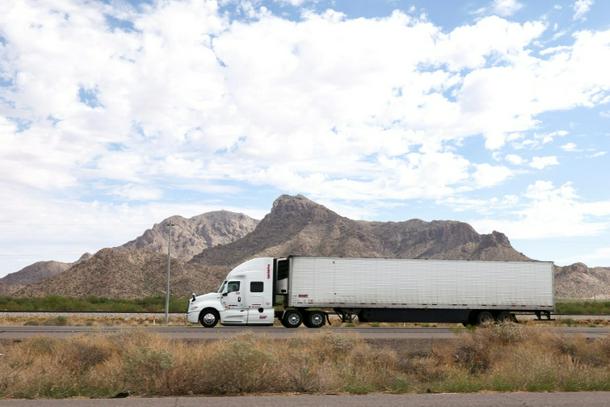
US President Donald Trump has announced a fresh round of tariffs on drugs, big-rig trucks, home renovation fixtures and furniture
Washington (AFP) - US President Donald Trump’s announcement of steep new tariffs on medicines and other goods drew pushback from some allies on Friday, with the EU claiming immunity for its pharmaceutical industry under an earlier trade deal.
The announcement late on Thursday evening, which included a 100 percent levy on pharmaceuticals, is the harshest trade policy by the president since last April’s shock unveiling of “reciprocal” tariffs on virtually every US trading partner across the globe.
Starting October 1, “we will be imposing a 100% Tariff on any branded or patented Pharmaceutical Product, unless a Company IS BUILDING their Pharmaceutical Manufacturing Plant in America,” the Republican wrote on his Truth Social platform.
The European Union said on Friday a July deal with Washington shielded the bloc from tariffs higher than 15 percent on its drug exports.
“This clear all-inclusive 15 percent tariff ceiling for EU exports represents an insurance policy that no higher tariffs will emerge for European economic operators,” EU trade spokesman Olof Gill said.
A European pharmaceutical industry group also warned that tariffs on medicines would “create the worst of all worlds.”
“Tariffs increase costs, disrupt supply chains and prevent patients from getting life-saving treatments,” Nathalie Moll, director general of the European Federation of Pharmaceutical Industries and Associations, said on Friday.
Trump’s latest move was also criticized by US ally Australia, which exported pharmaceutical products worth an estimated $1.35 billion to the United States in 2024, according to the UN’s Comtrade Database.
Australian Health Minister Mark Butler said on Friday that the higher rates were “not in the American consumers’ interest… particularly given the degree to which their exporters to Australia benefit from that free trade as well.”
- Big rigs -
In a separate post, Trump wrote of a 25 percent tariff on “all ‘Heavy (Big) Trucks’ made in other parts of the world” to support US manufacturers such as “Peterbilt, Kenworth, Freightliner, Mack Trucks and others.”
Foreign companies that compete with these manufacturers in the US market include Sweden’s Volvo and Germany’s Daimler, which includes the Freightliner and Western Star brands.
Shares in both companies were sharply lower in after-hours trading in Europe, although Volvo recovered when trading resumed.
Trump said the truck tariffs were “for many reasons, but above all else, for National Security purposes!”
The Trump administration launched a so-called Section 232 probe this year into imports of trucks to “determine the effects of national security,” setting the stage for Thursday’s announcement.
Section 232 is a trade law provision that gives the president broad authority to impose tariffs or other restrictions on imports when they’re deemed a threat to national security.
Trump has made extensive use of Section 232 to initiate investigations and impose tariffs on imported goods as part of his efforts to bolster US manufacturing and punish countries that he says are taking advantage of the US.
The real-estate tycoon also targeted home renovation materials, writing “We will be imposing a 50% Tariff on all Kitchen Cabinets, Bathroom Vanities and associated products,” from October 1.
“Additionally, we will be charging a 30% Tariff on Upholstered Furniture,” he added.
According to the United States International Trade Commission, imports in 2022, mainly from Asia, represented 60 percent of all furniture sold, including 86 percent of all wood furniture and 42 percent of all upholstered furniture.
Shares in home furniture retailers Wayfair and Williams Sonoma, which depend on these imported goods, tumbled in after-hours trading following the announcement.
- Protectionist policies -
The tariff onslaught will rekindle fears over inflation in the US economy, the world’s biggest.
Trump is on a mission to rebuild manufacturing through protectionist policies that mark a complete reversal of modern US policy to maintain an open and import-dependent economy.
His administration has imposed a baseline 10 percent tariff on all countries, with higher individualized rates on nations where exports to the US far exceed imports.
Trump has also used emergency powers to impose extra tariffs on trade deal partners Canada and Mexico, as well as on China, citing concerns over fentanyl trafficking and illegal immigration.
It was not yet clear how these new tariffs that kick in next week would factor into the existing measures.